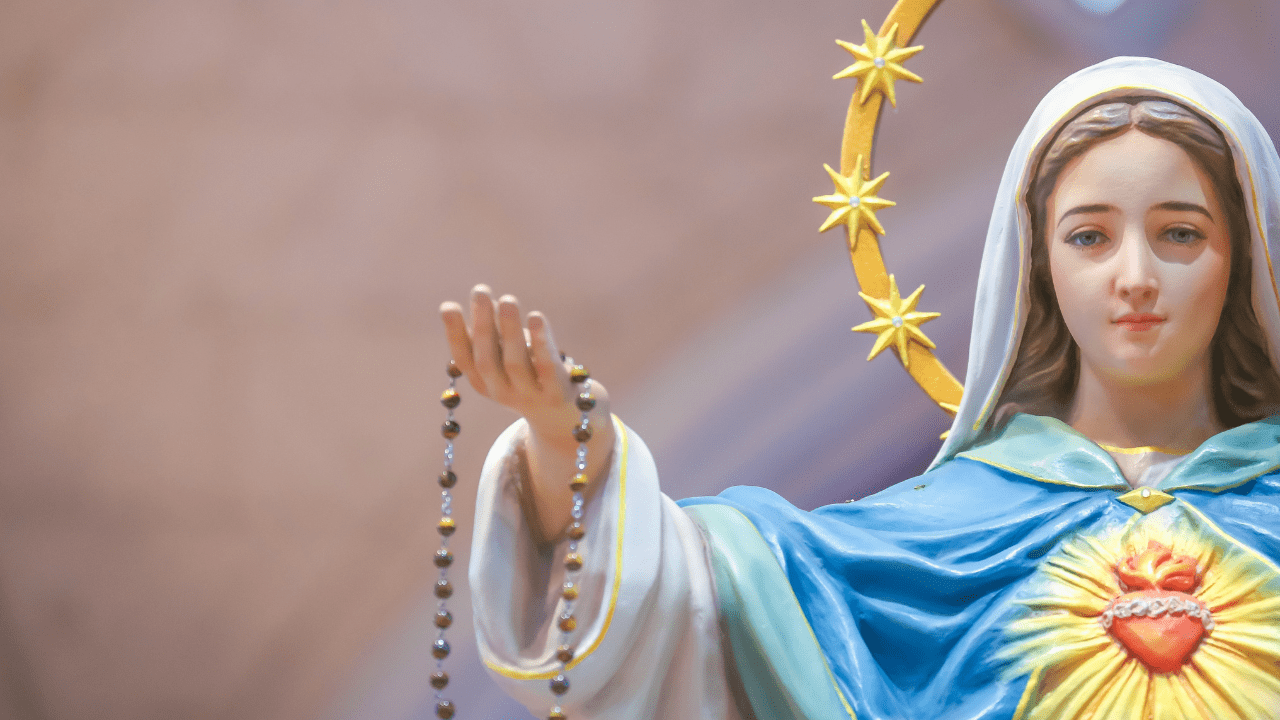As Catholics, we firmly profess Mary’s Immaculate Conception. It’s a dogma of the Church requiring the highest level of assent. It means that the Blessed Virgin Mary — from the moment of her conception — was preserved from original sin.
Original sin deprives us of sanctifying grace and wounds our human nature. But Mary had the gift of sanctifying grace her entire life.
Not all Eastern Orthodox believers agree with the Catholic Church about the Immaculate Conception. Some simply object to the language that is used. They think the Church’s use of the word “stain” with regard to original sin is too strong.
Other Eastern Orthodox completely reject the belief that Mary was conceived without original sin, although many think God later removed it from her.
Here is the Catholic response.
Death is the result of sin, but there are exceptions.
First, let’s note that the question of whether Mary died before being assumed into heaven is open to debate. But many Church Fathers believed that she did die, so we’ll hold that for the sake of argument.
Eastern Orthodox say that her death resulted from her inheriting original sin. That makes sense since death is a punishment for original sin.
But there are exceptions to this general rule. For example, the Old Testament figures of Enoch and Elijah are believed to have gone straight to heaven without dying. Yet there’s no indication that these men were free of original sin.
Some Eastern Orthodox — pointing to a belief by some that Enoch and Elijah would return at the end of time — say that they are coming again in order to die. But there’s no solid evidence of this. The Church Fathers are not in unanimity on this point.
The key here is that while death and original sin are normally linked, we have exceptions where people with original sin don’t die and those with it do die. If God can make exceptions for Enoch and Elijah, He can do it for His Mother.
If Mary died, her death may have not been like normal human death.
As we said, many Church Fathers believed that Mary died. This includes such luminaries as St. John of Damascus and St. Andrew of Crete. But when you examine all of these “dormition” Fathers, you’ll notice that they treat Mary’s death as being very different from ours.
If she died in a unique way, this weakens the argument that her death was due to original sin.
As Catholics, we have a lot in common with our Eastern Orthodox brothers and sisters. But Mary’s Immaculate Conception is a dogma we will defend as God’s revelation. Let’s pray that as we near the 1,000-year anniversary of the split between Rome and the East, the Eastern Orthodox come to fully embrace this immensely beautiful truth of our faith.







